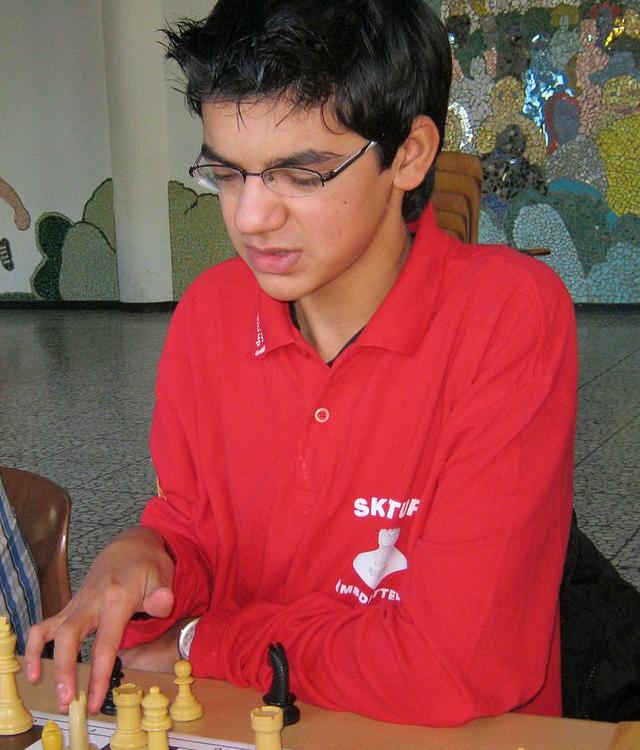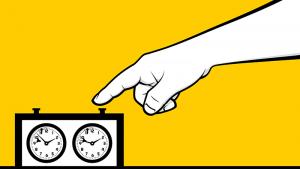
Don't Lose Trying Too Hard to Win
In my article on chess technique, I wholeheartedly agreed with Frank J. Marshall's affirmation that "the hardest thing in chess is to win a won game." Indeed, tenacious defense is now the norm rather than the exception.
Fifty years ago, the first rounds of an open tournament resembled a chess vacation for grandmasters, who almost invariably vanquished weaker opponents in a one-sided battle. But times have changed!
At times, it is understandably difficult to accept that you have let your opponent off the hook. It is tempting to keep pressing on in the naive hope that your opponent (who has defended persistently for many moves) will suddenly lose his cool and commit a fatal error.
More than anything, this article is a word of warning against stubbornness: it is often far more prudent to take the draw than to overpress and lose the game. As we'll see in a moment, even super GMs have lost ostensibly unlosable positions by overpressing.

Emily Loses! by Aaron Brown | CC
First, let us revisit one of the most incredible moments in recent super-tournament history. In a pivotal game against GM Sergey Karjakin in the 2014 Norway Chess Tournament, GM Anish Giri had his opponent on the ropes for more than 100 moves.
With plenty of time remaining on his clock, Giri had an agonizing decision to make: should he acquiesce and take the draw, or should he sacrifice a pawn and go for it all?
A truly heartbreaking loss, and one that was brought on by the aftermath of 116. g4 rather than by the move itself. When you engage in a risky winning attempt only to find that it has given your opponent chances, it becomes easy to panic and lose control of the game entirely -- which is exactly what happened to Giri.
In the following game, which is remarkably similar to Giri-Karjakin in a variety of ways, Irina Krush experiences the same psychological breakdown.
Of course, I am not suggesting that you should immediately agree to a draw if your opponent has constructed a fortress, but you should never let your emotions interfere with the decision-making process. In fact, if your opponent senses your frustration, he will merely redouble his defensive efforts, especially if you go for a dubious winning attempt after many moves of futile maneuvering. I myself have fallen prey to this "trap" on more than one occasion.
Here is one particularly memorable (and tragic) episode:
Once again, I am not trying to preach cowardice, but there exists a fine line between bravery and a headstrong reluctance to make a prudent decision. Crossing this line, as I was hopefully able to demonstrate, can have potentially fatal consequences.
As the Russians say, you should avoid "over-bending the stick" (my ineloquent translation) at all costs!
RELATED STUDY MATERIAL
- Check out GM Daniel Naroditsky's previous article: Morphy's Sacrfices Explained
- Who will have the better chess career, Anish Giri or Wesley So? Find out in our video
- Learn how to play "before reinforcements arrive" in the Chess Mentor
- You won't need to overpress if you're up a rook. Try out the Tactics Trainer
- Looking for articles with deeper analysis? Try our magazine: The Master's Bulletin






